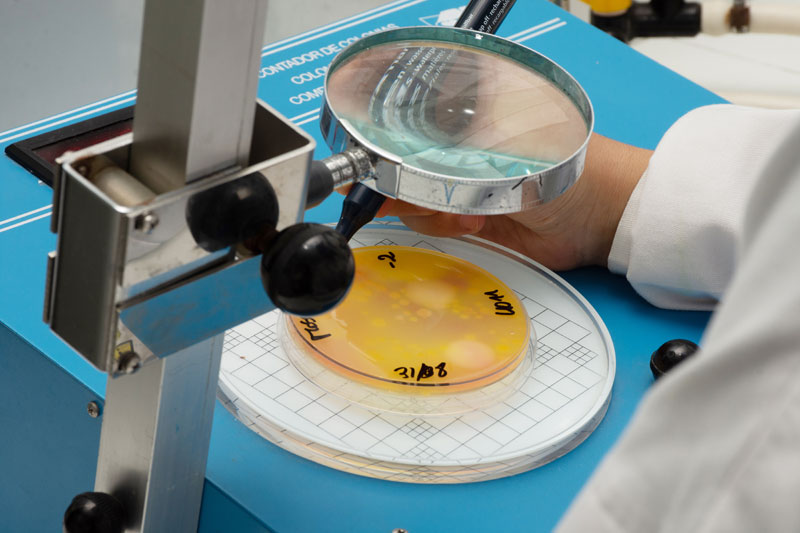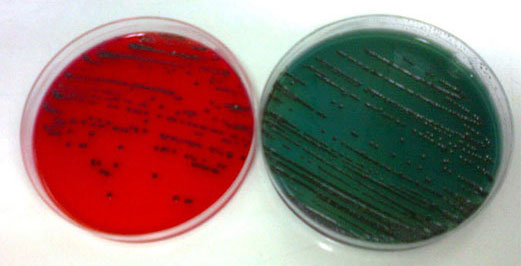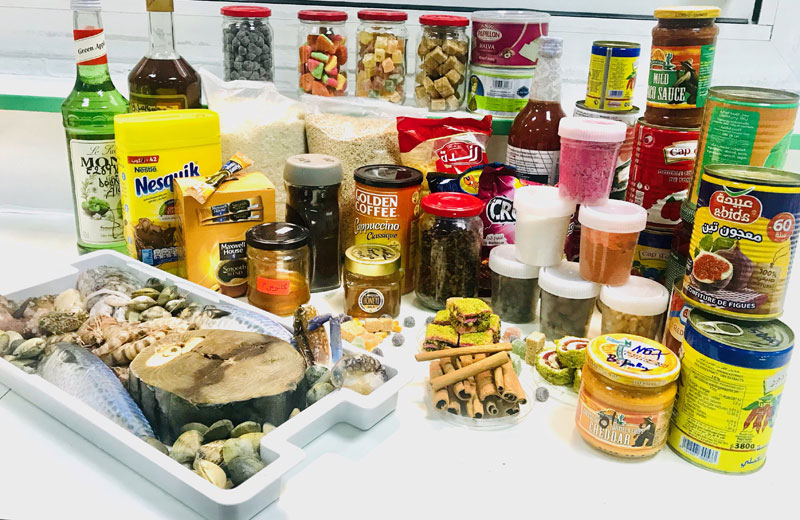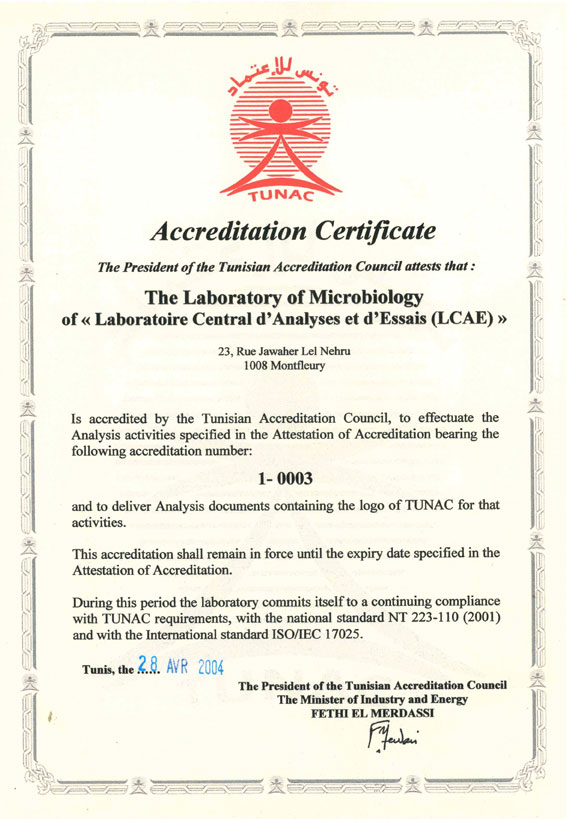Microbiology of Food Products
Food bacteriological analyzes are essential to check the conformity of products with the “hygiene” regulations in force. They must assess the pathogenic and spoilage flora present in food. Indeed, these are rarely sterile and are periodically contaminated in a primary manner or during the manipulations to which they are subjected during their manufacture. Some microorganisms do not pose a problem while others can be dangerous to human health. It is therefore either a question of looking for contamination by identifying pathogenic microorganisms and quantifying the number of colonies, or of germs that are witnesses of poor hygienic practices.

The LCAE microbiology laboratories: Guarantor of Quality
- Experience of more than 30 years
- Availability of this activity at the technical centers of TUNIS, SFAX and SOUSSE of the LCAE
- Accreditation of the TUNIS food and water microbiology laboratory since 2004 (about 17 years), by the French COFRAC Accreditation Committee and then the TUNAC National Accreditation Council.
- Participation in inter-comparison networks: RAEMA since 2003; BIPEA since 2007; AGLAE: since 2012; PHE since 2017
- Regular monitoring of the validity of the results by applying an internal control program throughout the performance of the analyses.
Type of Analysis:
- Spoilage microorganisms
- Technological Indicator Microorganisms
- Faecal contamination microorganisms
- Pathogenic microorganisms
- Can stability control
- List of analyzes

Type of Products:

- les produits destinés à la consommation humaine ou à l’alimentation animale
- Fresh, raw and processed meats, poultry and game, and their by-products
- Fish products; whole or shelled crustaceans; cephalopods; bivalve molluscs; Gastropods & Processed Products
- Cereals and cereal products: bakery products, pastries and cakes;
- Food for animals ;
- Margarines, spreads and non-dairy products containing water;
- Eggs and egg products;
- Fresh and processed fruits and vegetables (frozen, juice, etc.)
- Milk and derived dairy products
- Canned and similar products (food preserves at pH<4.5 and pH>4.5
- UHT and Sterilized Milk
Our skills :
- TUNAC Accredited Laboratory since 2004
- Accreditation number: 1-0002
- Scope of accreditation: Technical appendix ou tunac.tn
- Intercomparison trials : RAEMA - PHE- AGLAE







